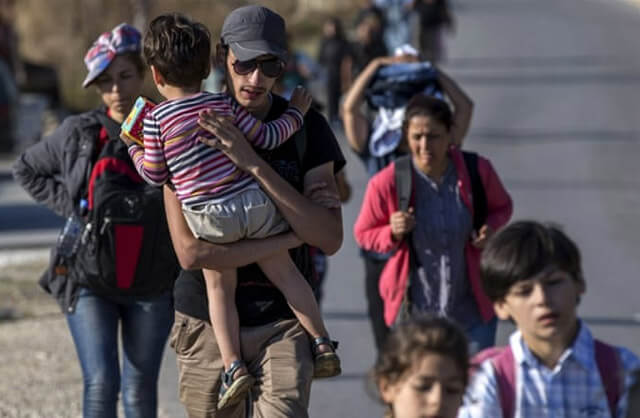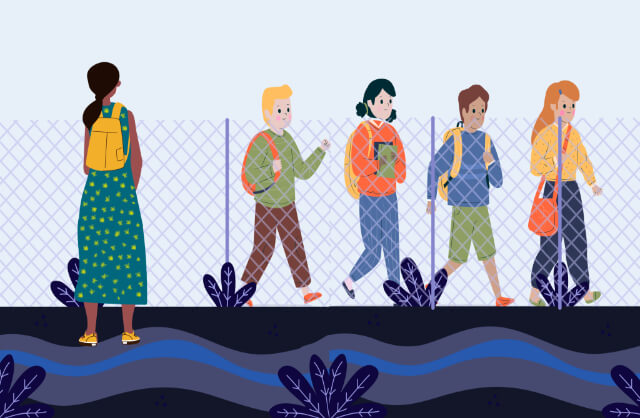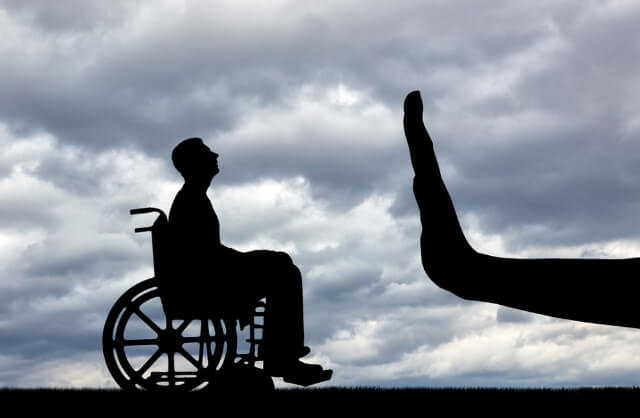Reaction to the xenophobia against refugees
September 7, 2017

In the wake of the public debate spurred by certain political structures in relation to the proposed Strategy for Integration of Refugees and Foreigners 2017-2027, which was followed by a significant amount of hate speech directed at refugees, the Helsinki Committee felt it necessary to present the current situation of the refugees in the Republic of Macedonia.
Namely, according to the Ministry of the Interior, in the period from June 2015 (when the official registration of refugees began) until the closure of the “Balkan Route” in March 2016, a total of 472,437 refugees were transiting through the Republic of Macedonia. Given that only during this period refugees were being registered, the real number of refugees who have passed through is much greater. According to the statistical data from the European Commission, more than 815,000 transited through the Republic of Macedonia in 2015, and in the first 4 months of 2016, 89,197 refugees.[1]
According to information obtained from the Ministry of Interior on the basis of a request for access to information of public character, the Helsinki Committee established that during the past 3 years, i.e. in the period from 2015 to June 2017, a total of 2,243 requests for granting the right of asylum were submitted by 2,717 persons in the Republic of Macedonia. Of these, only 5 persons were granted official refugee status, and only 11 persons were granted subsidiary protection. Below is a graphical representation of the acquired answers.

The figures presented above lead to the conclusion that only 0.275% of all refugees who have passed through the Republic of Macedonia has applied for recognition of the right of asylum, and only 0.22% of them have been granted refugee status. This shows that the Republic of Macedonia is merely a transit country for refugees from the recent refugee crisis, and in no case is it the country of final destination.
In contrast, an initiative was launched to the public based on false data according to which the Republic of Macedonia should have been prepared for the accommodation and integration of refugees. The public debate was followed by a high amount of xenophobic hate speech towards refugees, identifying them with terrorists, calling for the prevention of their settlement in the country with offensive and humiliating messages. Several civic initiatives aimed at collecting signatures of citizens against migrants have been initiated, which have constantly encouraged and provoked hate speech.
Additionally, in two municipalities in the country (Municipality of Gevgelija and Municipality of Aerodrom, Skopje), decisions have already been adopted for holding a referendum in which citizens will declare themselves for or against the settlement and integration of refugees in these municipalities. Although the establishment of civic initiatives and the call on a referendum for examining citizens’ opinions are democratic and legally permissible mechanisms, it is necessary that they do not provoke and encourage hatred towards a particular target group, in this case towards refugees.
The Helsinki Committee hereby warns that the continuous spread and encouragement of hate speech towards refugees can easily lead to hate crimes. As a reminder, from the beginning of 2015 up to date, the Helsinki Committee has registered 34 hate crimes committed against refugees or migrants on the territory of the Republic of Macedonia.[2]
We urge the Ministry of the Interior to carefully monitor the appearance of hate speech and to take appropriate measures against persons who spread and promote hatred on the grounds of nationality, ethnicity and religious beliefs. They must be properly prosecuted and punished in order to prevent the further spread of hate speech and its transition to hate crimes. At the same time, we call on all political subjects and public figures not to spread unnecessary panic and anxiety among citizens by presenting false information of the settlement and integration of refugees.
[1] https://ec.europa.eu/echo/files/aid/countries/factsheets/fyrom_en.pdf
[2] https://www.zlostorstvaodomraza.mk/reports#


